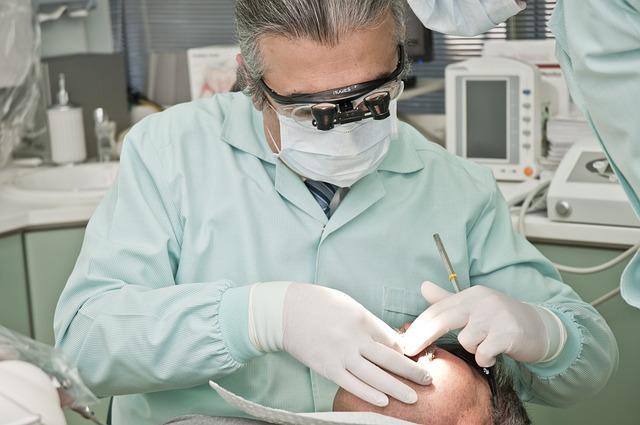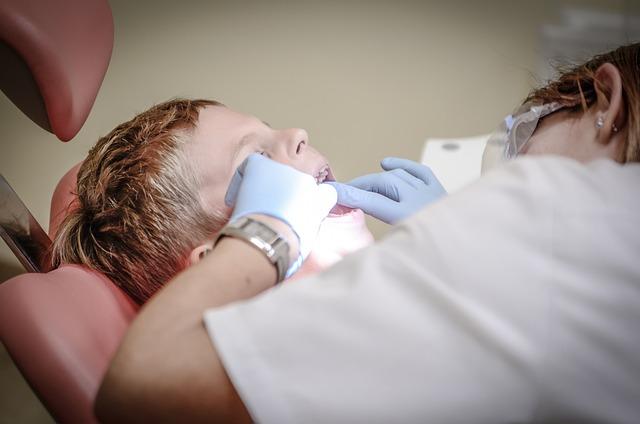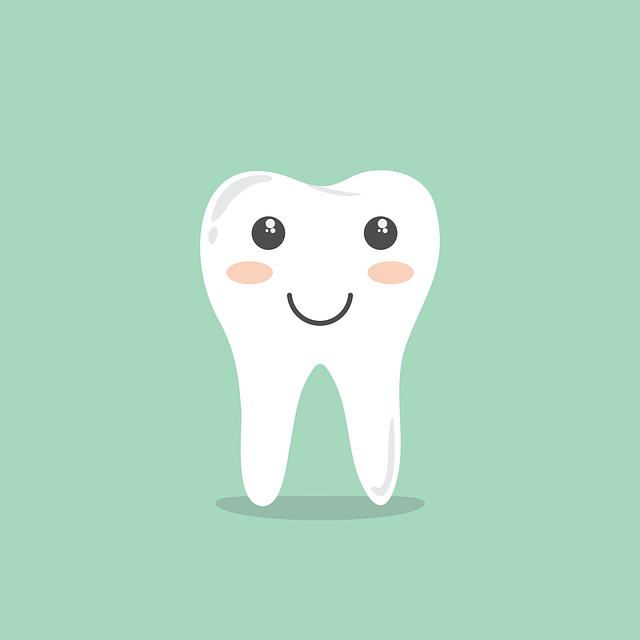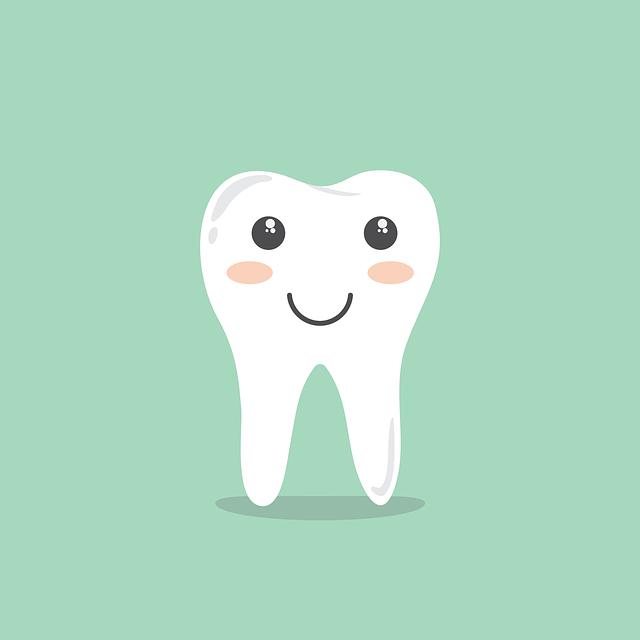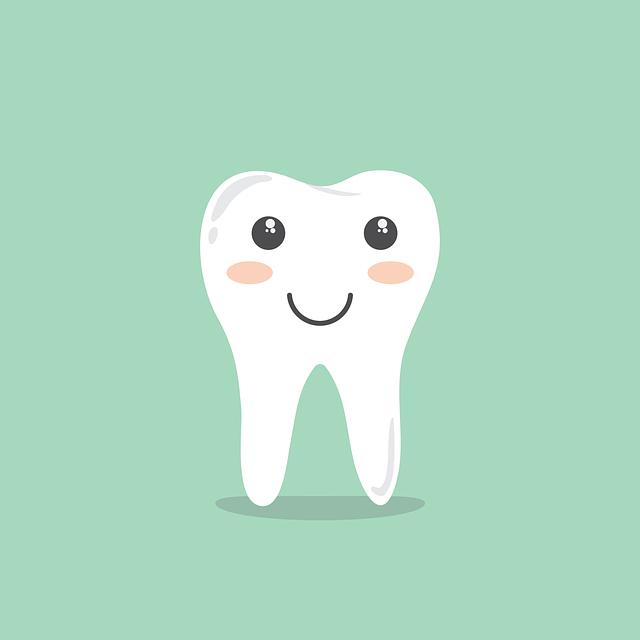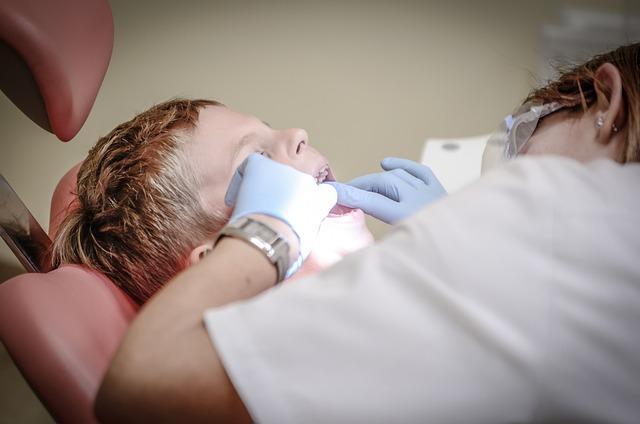Does Salt Water Help Tooth Decay: Analyzing Impact
Salt water has long been hailed as a natural remedy for various ailments, from soothing sore throats to promoting wound healing. But what about tooth decay? Does salt water really have the power to combat this common dental problem? In this article, we delve into the science behind salt water’s potential impact on tooth decay, separating fact from fiction. With a confident and knowledgeable approach, we aim to provide a clear understanding of whether salt water truly holds the key to preventing and treating tooth decay. So, let’s dive in and explore the captivating world of salt water and its intriguing relationship with dental health.
1. The Role of Salt Water in Dental Health: Debunking the Myth Surrounding Tooth Decay
Salt water has long been associated with dental health, with some people believing that it can prevent tooth decay. However, it is important to debunk this myth and understand the actual role of salt water in maintaining oral hygiene.
1. Salt water does not directly prevent tooth decay: While rinsing your mouth with salt water can provide temporary relief for certain dental issues, it is not a direct solution for preventing tooth decay. Tooth decay is primarily caused by the buildup of plaque on the teeth, which is the result of poor oral hygiene habits and a diet high in sugars and carbohydrates. Regular brushing, flossing, and using fluoride toothpaste are essential for preventing tooth decay.
2. Salt water can help with oral health: Although salt water does not directly prevent tooth decay, it can have some beneficial effects on oral health. Salt water rinses can help reduce inflammation, soothe gum irritation, and promote healing after oral surgeries or extractions. It can also act as a temporary disinfectant, reducing the number of bacteria in the mouth. However, it is important to note that salt water rinses should not replace regular oral hygiene practices.

2. Understanding the Impact of Salt Water on Tooth Decay: Separating Fact from Fiction
In order to truly understand the impact of salt water on tooth decay, it is important to separate fact from fiction. There are many misconceptions surrounding this topic, and it is crucial to rely on accurate information in order to make informed decisions about oral health. Here are some key points to keep in mind:
1. Salt water is not a substitute for regular brushing and flossing: While salt water can have some benefits for oral health, it should not be seen as a replacement for proper oral hygiene practices. Brushing twice a day with fluoride toothpaste and flossing daily are still the most effective ways to prevent tooth decay and maintain good oral health.
2. Salt water can have antibacterial properties: Salt water rinses have been used for centuries as a natural remedy for various oral health issues. Salt has antibacterial properties that can help reduce the number of harmful bacteria in the mouth. However, it is important to note that salt water rinses should be used as a supplement to, not a substitute for, regular oral hygiene practices.
3. Salt water rinses can provide temporary relief for certain oral health conditions: Salt water rinses can help alleviate symptoms of certain oral health conditions, such as gum infections or canker sores. The salt water can help reduce inflammation and promote healing. It is always best to consult with a dentist or healthcare professional for guidance on using salt water rinses for specific oral health concerns.

3. Exploring the Potential Benefits of Salt Water Rinse in Preventing Tooth Decay
Salt water rinse is a natural solution that has gained popularity in recent years for its potential benefits in preventing tooth decay. This simple and cost-effective oral hygiene practice involves swishing a mixture of warm water and salt in the mouth for a specified period of time.
So, what are the potential benefits of incorporating salt water rinse into your oral care routine?
- Oral hygiene: Salt has natural antibacterial properties that can help eliminate harmful bacteria in the mouth, reducing the risk of cavities and gum disease.
- Reduced inflammation: Salt water rinse can help reduce inflammation and soothe irritated gums, providing relief for those suffering from gingivitis or other gum conditions.
- Wound healing: Salt water rinse can aid in the healing process of oral wounds, such as mouth sores or after oral surgery, by promoting tissue repair and preventing infection.
- Bad breath prevention: The antibacterial properties of salt can also help freshen breath by killing odor-causing bacteria in the mouth.
While salt water rinse may offer these potential benefits, it is important to note that it should not replace regular brushing and flossing. It should be used as a supplementary oral hygiene practice, alongside a proper oral care routine and regular visits to the dentist.
4. Salt Water vs. Traditional Mouthwashes: A Comparative Analysis in Dental Care
When it comes to maintaining good oral hygiene, mouthwash is an essential component. While traditional mouthwashes have been widely used for decades, a new alternative has emerged—salt water mouthwash. In this comparative analysis, we will delve into the key differences between these two options and explore their effectiveness in dental care.
Benefits of Salt Water Mouthwash:
- Natural antimicrobial properties that help kill bacteria and reduce inflammation in the mouth.
- Can aid in the healing of minor oral injuries, such as mouth ulcers or gum sores.
- Gentle on the gums and tissues, making it suitable for individuals with sensitive mouths.
- Cost-effective and easy to prepare at home.
- No artificial colors or chemicals, making it a preferable option for those seeking a more natural approach.
Benefits of Traditional Mouthwash:
- Contains active ingredients like fluoride, which can help prevent tooth decay and strengthen enamel.
- Offers a wide range of flavors to combat bad breath and leave a refreshing taste.
- Alcohol-based formulations may provide a temporary sensation of freshness and cleanliness.
- Readily available in most stores and pharmacies.
- Recommended by many dental professionals for its proven effectiveness in reducing plaque and gingivitis.
Ultimately, the choice between salt water and traditional mouthwashes depends on personal preference and specific dental needs. It is advisable to consult with a dental professional to determine the most suitable option for your oral care routine. Remember, consistent and thorough oral hygiene practices, including brushing and flossing, remain the foundation of a healthy smile.
5. The Science Behind Salt Water’s Effectiveness in Combating Tooth Decay
When it comes to combating tooth decay, salt water has been proven to be highly effective. This is due to the science behind its unique properties and the way it interacts with the mouth. Here are some key factors that explain why salt water is a powerful tool in maintaining oral health:
1. Antibacterial properties: Salt water acts as a natural disinfectant, killing harmful bacteria that can lead to tooth decay. The high salt concentration creates an inhospitable environment for these bacteria, preventing them from thriving in the mouth.
2. Reduces inflammation: Swishing salt water in the mouth helps to reduce inflammation and soothe irritated gums. This is particularly beneficial for individuals with gum disease or sensitive gums, as it promotes healing and reduces discomfort.
3. Balances pH levels: Salt water has the ability to restore the pH balance in the mouth, which is crucial for maintaining a healthy oral environment. By neutralizing acidity, salt water prevents the demineralization of tooth enamel and helps to protect against tooth decay.
Overall, is grounded in its antibacterial properties, ability to reduce inflammation, and its role in balancing pH levels. Incorporating salt water rinses into your oral hygiene routine can be a simple yet powerful way to enhance your dental health.
6. Harnessing the Power of Nature: How Salt Water Can Strengthen Your Teeth
There’s no denying the power of nature when it comes to our overall health and well-being. And when it comes to our teeth, there’s an unexpected source of strength that can be harnessed – salt water. Yes, that’s right, the same stuff that makes our oceans salty can actually benefit our teeth in surprising ways. Here’s how:
1. Natural antibacterial properties: Salt water has long been recognized for its antibacterial properties. Rinsing your mouth with salt water can help kill harmful bacteria that may be lurking in your mouth, reducing the risk of tooth decay and gum disease.
2. Soothing and healing effects: Salt water has a soothing and healing effect on inflamed gums and can help alleviate discomfort caused by toothaches, canker sores, and other oral irritations. It promotes the natural healing process, allowing your mouth to heal faster.
3. Mineral-rich composition: Salt water contains minerals like calcium, magnesium, and phosphates, which are essential for maintaining strong and healthy teeth. These minerals help to remineralize the enamel, making it stronger and more resistant to acid attacks from bacteria.
Next time you’re looking for a natural way to enhance your dental health, consider harnessing the power of salt water. A simple salt water rinse can go a long way in strengthening your teeth and promoting a healthy smile.
7. Unveiling the Truth: Can Salt Water Really Reverse the Effects of Tooth Decay?
As dental health enthusiasts, we often come across various remedies claiming to reverse tooth decay. One such remedy that has gained considerable attention is salt water. But does it actually work? Let’s delve into the facts and separate the truth from mere speculation.
The Benefits of Salt Water Rinse:
- Anti-bacterial properties: Salt water has natural antibacterial properties that can help kill harmful bacteria in the mouth, reducing the risk of infection and decay.
- Reduced inflammation: Rinsing with salt water can help reduce inflammation and swelling, providing relief from toothaches and gum infections.
- Improved pH balance: Salt water rinse can help maintain a balanced pH level in the mouth, creating an environment less favorable for harmful bacteria to thrive.
Limitations to Consider:
- Not a cure-all solution: While salt water rinse can provide temporary relief and aid in maintaining oral health, it is essential to remember that it cannot reverse advanced tooth decay on its own.
- Professional dental care: Regular visits to a dentist, along with proper oral hygiene practices, are crucial for addressing tooth decay effectively. Salt water rinse should be seen as a complementary measure, not a substitute for professional dental care.
Remember, maintaining good oral hygiene habits, such as brushing twice a day, flossing, and using fluoride toothpaste, is key to preventing and managing tooth decay. While salt water rinse may offer some benefits, it is always best to consult with a dental professional for personalized advice and treatment options.
8. Integrating Salt Water Rinses into Dental Hygiene: A Step Towards Oral Health
Integrating salt water rinses into your dental hygiene routine can be a simple yet effective step towards improving your oral health. Salt water rinses, also known as saline rinses, have been used for centuries as a natural remedy for various dental issues. The benefits of incorporating this practice into your daily routine are numerous, and they can complement your regular brushing and flossing routine.
- Reduced inflammation: Salt water has natural anti-inflammatory properties that can help alleviate gum swelling and reduce redness. Regular rinsing with salt water can provide relief from gum diseases such as gingivitis.
- Improved wound healing: Salt water rinses can aid in the healing process of oral wounds, such as mouth sores or after dental procedures like extractions. The saline solution helps cleanse the area and promotes faster healing.
- Antibacterial properties: Salt water has mild antibacterial properties that can help kill harmful bacteria in the mouth. This can assist in preventing the buildup of plaque, tartar, and bad breath.
Integrating salt water rinses into your dental hygiene routine is simple. All you need is warm water and salt. Dissolve half a teaspoon of salt in a glass of warm water and use it to rinse your mouth for about 30 seconds. Spit out the solution and repeat a few times a day or as advised by your dentist or dental hygienist.
9. Navigating the Controversy: Understanding the Limitations of Salt Water in Preventing Tooth Decay
In recent years, there has been a surge of interest in using salt water as a natural remedy for preventing tooth decay. While it is true that salt water can have some benefits for oral health, it is important to understand its limitations and not solely rely on it as a substitute for proper dental care. Here are a few key points to consider:
- Salt water is not a cure-all: It is crucial to remember that salt water is not a magical solution that can completely prevent tooth decay. While rinsing with salt water can help reduce bacteria and inflammation in the mouth, it cannot replace regular brushing, flossing, and professional dental cleanings.
- Effectiveness varies from person to person: The effectiveness of salt water in preventing tooth decay can vary depending on individual factors such as oral hygiene habits, diet, and overall oral health. Some individuals may experience more significant benefits than others.
- It is not a substitute for dental visits: Regular dental check-ups are essential for maintaining good oral health. Visiting a dentist allows for early detection and treatment of dental issues that salt water alone cannot address.
- Considerations for those with specific conditions: Individuals with certain conditions, such as high blood pressure or kidney problems, should exercise caution when using salt water rinses. It is always advisable to consult with a healthcare professional before incorporating any new oral health practices.
While salt water can be a helpful addition to a comprehensive oral hygiene routine, it is important to understand its limitations and use it in conjunction with other recommended dental practices. Remember, maintaining good oral health requires a holistic approach that includes regular brushing, flossing, professional cleanings, and seeking guidance from dental professionals.
10. Salt Water Rinse: A Natural Approach in Maintaining Dental Wellness
Salt water rinse is a simple and effective natural remedy that can help maintain dental wellness. It has been used for centuries to treat various oral health issues, thanks to its numerous benefits. Here’s why you should consider incorporating salt water rinse into your oral care routine:
1. Reduces inflammation: The saline solution created by dissolving salt in warm water has anti-inflammatory properties. Gargling with salt water can help reduce swelling and soothe sore gums, providing relief from gum diseases like gingivitis.
2. Fights bacteria and infections: Salt water acts as a natural disinfectant and can help kill harmful bacteria in the mouth. It can also aid in healing oral wounds and mouth sores, as it creates an environment that is hostile to bacteria and prevents further infection.
3. Promotes oral hygiene: Regular use of salt water rinse can help maintain good oral hygiene. It can effectively remove food particles and debris stuck between teeth and in hard-to-reach areas, reducing the risk of plaque buildup and cavities.
To prepare a salt water rinse, dissolve half a teaspoon of salt in a glass of warm water. Swish the solution in your mouth for about 30 seconds, focusing on the affected areas. Spit it out and rinse your mouth with plain water afterward. Repeat this process two to three times a day or as recommended by your dentist.
Remember, while salt water rinse is a natural approach in maintaining dental wellness, it should not replace regular brushing, flossing, and dental check-ups.
Frequently Asked Questions
Q: Does salt water help prevent tooth decay?
A: Yes, salt water can help prevent tooth decay to some extent.
Q: How does salt water help in preventing tooth decay?
A: Salt water works as a natural disinfectant, helping to kill harmful bacteria in the mouth that contribute to tooth decay.
Q: What are the benefits of using salt water as a mouth rinse?
A: Salt water mouth rinses can help reduce inflammation, soothe gum tissues, and promote healing of oral wounds. It may also help freshen breath temporarily.
Q: Is salt water an effective substitute for regular toothpaste?
A: While salt water is beneficial, it should not replace regular toothpaste. Salt water rinses should be used in addition to proper oral hygiene practices, including brushing and flossing.
Q: Can salt water completely cure tooth decay?
A: No, salt water cannot completely cure tooth decay. It can only assist in preventing decay and maintaining oral health when used in conjunction with proper dental care.
Q: How often should one use salt water mouth rinses?
A: Salt water rinses can be used 2-3 times a day or as recommended by your dentist. However, it’s essential to remember that salt water rinses should not replace regular brushing and flossing.
Q: Are there any risks or side effects of using salt water as a mouth rinse?
A: Salt water rinses are generally safe when used properly. However, excessive use may lead to dry mouth or irritation of the oral tissues. It is advisable to consult with a dentist before incorporating any new oral care routine.
Q: Can salt water be used for other dental purposes?
A: Yes, salt water can also be used to alleviate discomfort from mouth sores, gum infections, and minor dental procedures. However, it is always recommended to consult with a dental professional for proper guidance.
Q: Is there any scientific evidence supporting the effectiveness of salt water for oral health?
A: While there is limited scientific research specifically focused on salt water’s impact on tooth decay prevention, the antibacterial properties of salt have been well-documented. Further studies are needed for a comprehensive understanding of salt water’s exact role in oral health.
Q: Should everyone use salt water mouth rinses?
A: Salt water mouth rinses can be beneficial for most individuals, but it’s important to remember that oral health needs may vary. Consulting with a dental professional is always advised to determine the best oral care routine for an individual’s specific needs.
In Retrospect
In conclusion, our analysis of the impact of salt water on tooth decay reveals several key takeaways. Firstly, salt water has been found to possess antibacterial properties that can help reduce the growth of harmful bacteria in the mouth. This can potentially contribute to preventing tooth decay and maintaining oral health.
Secondly, salt water rinses have shown promising results in reducing inflammation and promoting gum health. By flushing out debris and soothing irritated gums, salt water can aid in preventing gum diseases that often lead to tooth decay.
Thirdly, while salt water can provide some benefits, it is important to note that it is not a substitute for regular dental care. Brushing and flossing, along with regular dental check-ups, remain crucial in maintaining optimal oral hygiene.
Furthermore, it is essential to mention that the effectiveness of salt water may vary from person to person. Factors such as individual oral health, diet, and lifestyle choices can influence the overall impact.
In conclusion, incorporating salt water rinses as a part of your oral hygiene routine may offer some advantages in preventing tooth decay and promoting gum health. However, it is crucial to consult with your dentist to determine the most suitable approach for your specific needs.
Remember, knowledge and understanding are key when it comes to maintaining good oral health. Stay informed, stay proactive, and continue to prioritize your dental well-being.

